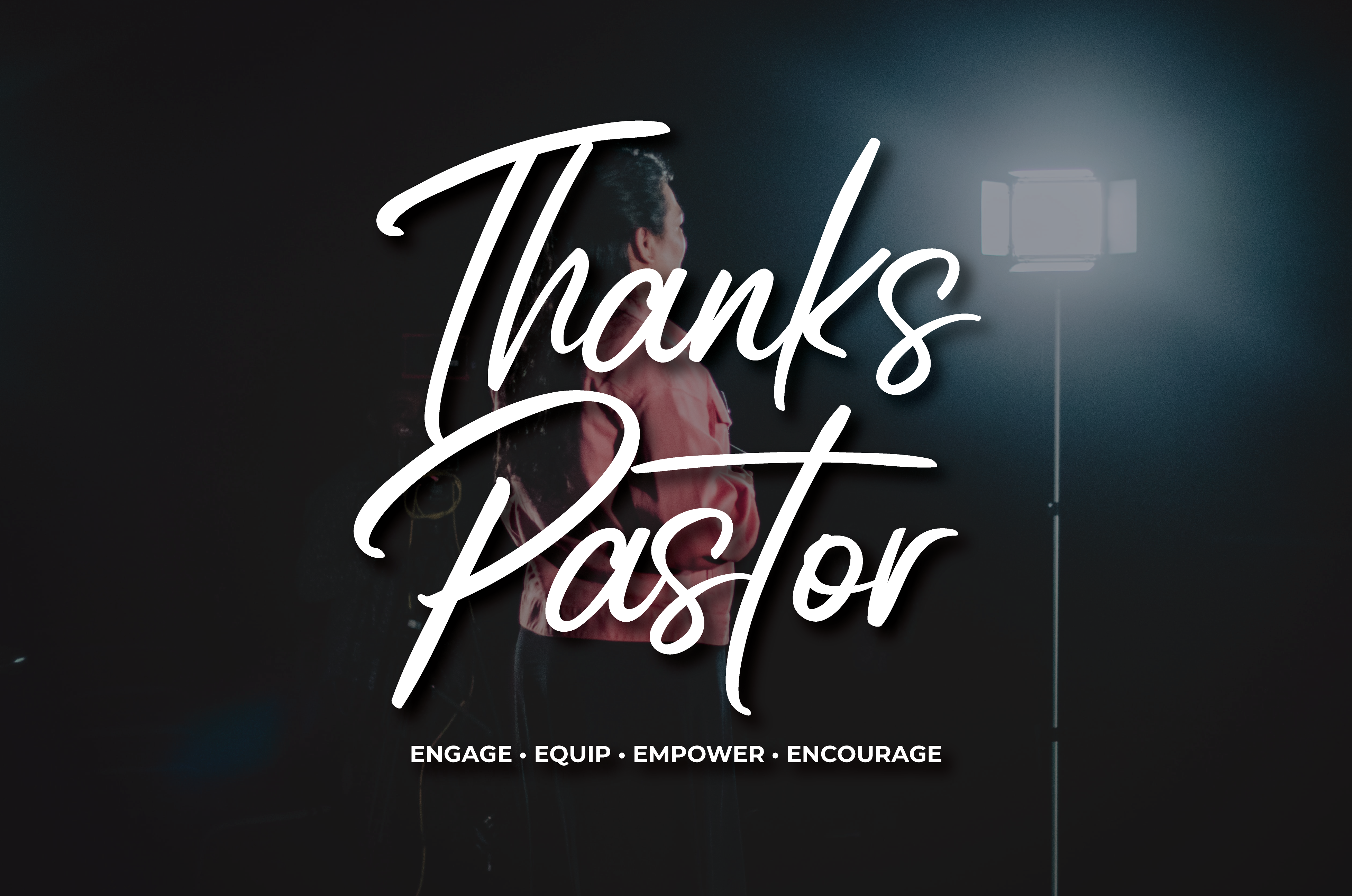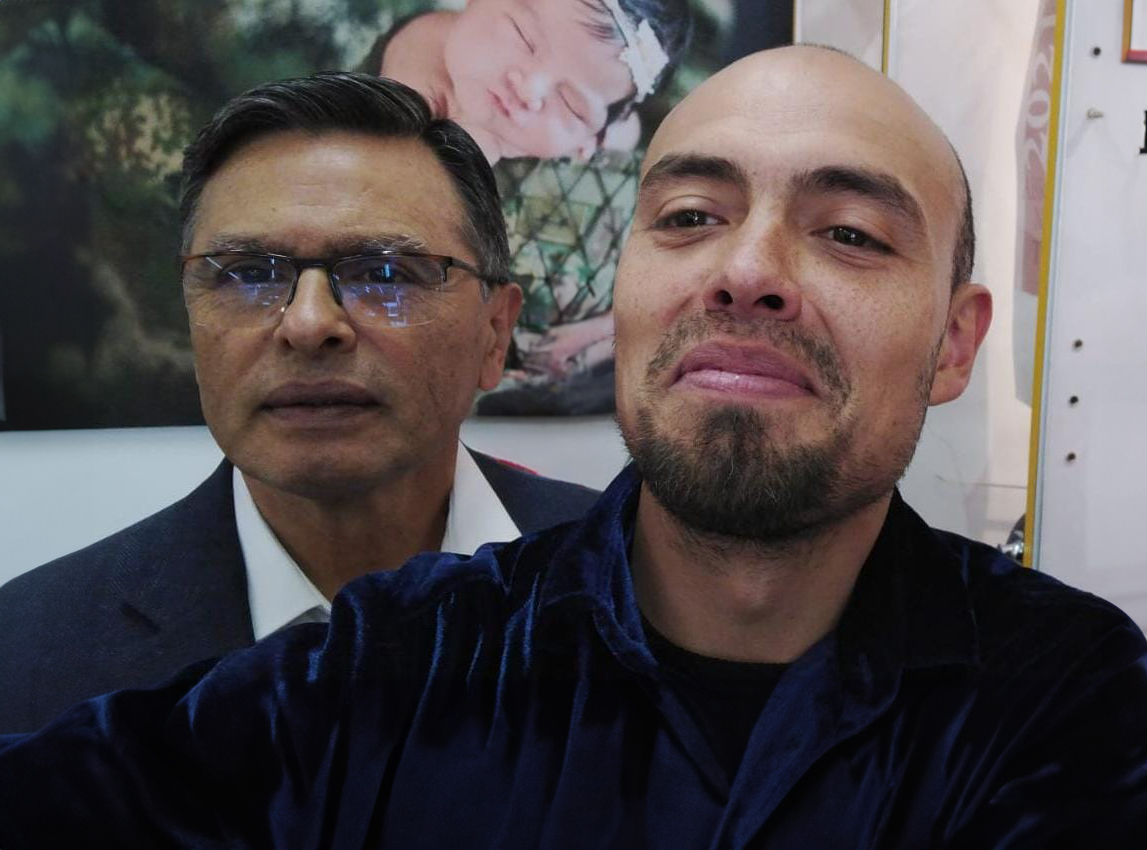Welcome to the Gospel Reverb podcast. Gospel Reverb is an audio gathering for preachers, teachers, and Bible thrill seekers. Each month, our host, Anthony Mullins, will interview a new guest to gain insights and preaching nuggets mined from select passages of Scripture in that month’s Revised Common Lectionary.
The podcast’s passion is to proclaim and boast in Jesus Christ, the one who reveals the heart of God, Father, Son, and Holy Spirit. And now onto the episode.
Anthony: Hello, friends, and welcome to the latest episode of Gospel Reverb. Gospel Reverb is a podcast devoted to bringing you insights from Scripture, found in the Revised Common Lectionary, and sharing commentary from a Christ centered and Trinitarian view.
I’m your host, Anthony Mullins, and it’s my delight to welcome our guest, Jon DePue. Jon is the co-author of the book Beyond Justification: Liberating Paul’s Gospel, which he co-wrote with Douglas Campbell. He is also the co-host of the YouTube channel and podcast, “Apocalypse Here: Christianity You Can Live With.” (That sounds good.) Jon earned a Master of Divinity from Duke Divinity from right here in beautiful Durham, North Carolina.
Jon, thanks for being with us and welcome to the pod. And since this is your first time. Glad you’re here. We’d love to know a little bit about you, your personal story, and how you’re joining with Jesus these days.
[00:01:30] Jon: Sure, happy to. Thank you for inviting me on, Anthony. And yeah, if we want to go way back. I can narrate my story a little bit.
I grew up in the Des Moines, Iowa area, so I’m a native Iowan. I grew up in a family context that was not particularly religious or specifically Christian. But of course, that’s in the water. My grandparents were quite devout and Pentecostal to be precise. So, in terms of church stuff, it was mostly going to church with them because they lived in the area.
But going to college was the first time that I started interacting with ideas, like seriously interacting with ideas, about faith and God and Jesus and all of that. I went into college and started as a Philosophy major and ended up taking a couple of classes in the Religion department because at that time they were a combined department, Philosophy and Religion, and was struck by what I was reading in an academic setting about God from these ancient thinkers who were writing about God and Jesus Christ.
And I was struck by this sort of story that they were telling about a God of love being revealed in Christ and how that impacts their lives and how they think about reality, how they think about other people, how they think about what it means to be a person. And over the course of my college days, I got to a point where, and I can’t really name a precise moment, but I think I came to a point where I was like, you know what? I think this stuff is true.
So, it became — once an academic exercise in trying to write good papers and get good grades and all of that. But at the same time, it was becoming more and more clear that this stuff was drawing me in, the content of it.
And I’m in the God who is being spoken about by these key thinkers in the Christian tradition, people like Origen, people like Augustine, people like Gregory of Nyssa. All of that stuff was impacting me on a personal level. And yeah, I got to a point where I was comfortable calling myself a Christian and started attending a local Presbyterian church and getting involved there under the mentorship of one of my professors at that college.
It was a little liberal arts college called Simpsons college in Iowa. And toward the end of my time there, I started to feel a sense of call to further study. And I didn’t really know what that meant, but my advisor at my college was a Duke graduate.
And so, he kindly pushed me in that direction. And by kindly he said, you should apply there. And so, I did, and I got into Duke and started studying there at that MDiv program at Duke, trying to find my way through that and ended up, through what’s known as field education, basically interning at various churches in North Carolina specifically the Durham area, Triangle area (Durham, Raleigh, Chapel Hill), and getting involved in churches.
And I started to realize I had a real passion for teaching. In that context, teaching about God in that context and walking people through questions about faith, questions about God and all of that. So, I spent a lot of time in churches, in Christian education sort of settings and loved it so much.
And I worked for several years at a United Church of Christ church in Cary. And I should go back a little bit. I met my now wife at Duke as well, not to overlook that. I met her in a doctoral seminar that I was kindly let into.
[00:06:04] Anthony: That’s usually where it happens — doctoral seminars.
[00:06:05] Jon: Yes, that’s where the romance really sparks.
[00:06:05] Anthony: That’s right, the fire burns.
[00:06:06] Jon: Yeah, that’s exactly right, yeah. Pretty much everyone can relate to that. Yeah, so I worked in at the United Church of Christ Church, called Good Shepherd, in Cary for a long time. Then we ended up — my wife ended up taking a job in Virginia, so we moved to Virginia for a while, and then I ended up getting a job in Indianapolis, and we’ve been all over the place for the past few years.
But my love for teaching and my love for writing about the good news of Jesus Christ, of his love, and (as you said, in our prayer to kick things off) this love that never ends, that can’t be broken by anything we do. That is the sort of driving point for how I think about everything — how I think about other people, how I think about reality.
And that kind of connects back to how I became a Christian in the first place was becoming confronted with this unconditionally loving God revealed in Christ. So that’s my story in a nutshell.
[00:07:16] Anthony: But you said that you wanted to get good grades and I’m assuming you did — you graduated. So, congratulations! And that led you to do some writing. And so, I’m going to ask you about your recently released book, but before I do, I’m going to commit the cardinal sin of podcasting. I’m going to stack three questions into one for the sake of time, but you sound like a smart guy, so I’m sure you can handle it.
First of all, just tell us about the book Beyond Justification. What prompted you to write it? What do you hope readers will get from it? And what do you mean when you say beyond justification?
[00:07:54] Jon: So, to just take these in order. What prompted me to write this with Douglas, specifically. So, Douglas Campbell is a New Testament scholar at Duke, and he was assigned as my advisor at Duke. So, I followed him around like a bad smell for my three years there. I learned tons. I learned so much from him, and I really became persuaded by his kind of approach to specifically Pauline theology and more specifically to his reading or rereading of the book of Romans, especially the front end of Romans, which is a really tricky text — Romans 1-3.
And he wrote this giant book over a thousand pages back in 2009 called The Deliverance of God. And I became a pretty much obsessed with that book and what it was about, the arguments he was making there about how Paul is actually, in Romans 1-3, quoting an opponent and then going on to respond to that opponent that he set up and characterized in a certain way.
And what ends up happening is that Paul becomes really consistent in his thinking about who God is. And especially who God is in Jesus Christ specifically.
So, I was like, this is great, but it’s a thousand pages. It’s also very technical. You need to know Greek to really get it. He’s going through tons of different disciplines, semiotics, philosophy, theology, sociology, and bringing all of these things together in a way that is really intimidating, I think, for the everyday person.
So, after I graduated, my thought was, is there a way to make this stuff that I find personally and spiritually and academically meaningful, powerful and important — is there a way to make this clear for people? Because I want to get this out there, right? So, the impetus was that, trying to make plain some of his arguments in a way that hadn’t really been the case before.
And so how we made that happen was I had to twist his arm into co-authoring the book with me to get him to sign off on it. And we ended up pitching the book to Wipf and Stock, and they picked it up.
What I’m hoping that readers will learn in the process of reading this book — it’s 300 pages, so it’s better than a thousand pages. And it’s accessibly written. It’s in fairly plain language. What I hope readers get out of this is getting more in touch with the God that Paul is proclaiming is revealed in Jesus Christ, who loves and cares for you, even while you were hostile to God, while you were sinful. As Paul says in Romans 5, that God loves you so much that God will never, ever give up on you ever, that love is unending.
So, the main goal of the book is to get people in touch with that reality, I think. Because I think it is reality. It’s the reality that structures everything. Now the subtitle or the title, Beyond Justification, is indicating a couple things, and I can run through these real quick.
Justification gets read in a certain way, traditionally, especially among Protestants; and it’s that you’ve been declared guilty by God because you failed to meet up to God’s expectations for you. So, God looks at you, basically, with a no. God says, no. God is upset with you. And so, God sends Jesus to deal with that problem that God has with you. Christ takes out basically what you deserve on Christ on the cross.
And then through faith alone, you can have access to the good stuff. Basically, God says yes to you finally. And you’re justified in that, through that faith in Jesus Christ. So, Christ steps in, gets what you deserve. You believe in that, you get the good stuff from Christ, and that’s what’s known as justification.
You’re declared righteous at that moment. So that’s the traditional story of justification. What we mean by beyond justification is that’s not really the whole story of what Paul’s doing. And in fact, that particularly retributive, contractual account of justification is exactly what he is arguing against in his gospel.
His gospel of justification is a gospel of life. Justification for him is so tightly connected to the resurrection in his text when he’s actually unpacking his own theology.
Okay, so we’re not unhappy with the word justification. We’re unhappy with the way that it’s been characterized and mobilized and used that kind of gets in the way of really getting in touch with the God of unconditional love.
So that’s what beyond justification is getting at.
[00:13:07] Anthony: Is it fair to say, Jon, that especially in the West, in the way that we have this judicial, legal sense of justification, that we focus our energies there in the church? And what gets lost in that is the beauty of, say, adoption? We’re always talking about justification, which like you said, is contractual, but we miss the covenantal relationship aspect of what the gospel is sharing with us.
Is that fair, and does that come out in your book in any way?
[00:13:40] Jon: That definitely comes out in the book for sure, and I think you’re exactly right. And I think part of the reason why justification has become so centered, or a certain reading of justification gets so centered, is because of the order that Paul’s letters are in our Bibles, to be honest.
Because in Romans, you do get justification language right off the top. And so, if you’re just reading Paul’s letter straight through, you’re probably going to think, yeah, Paul’s all about justification. But if we step back and think where is the center of Paul’s gospel truly? It is all about — you use the language of adoption — it’s all about being involved in a family with God, which is why Paul calls us adelphoi, brothers and sisters. We’re adopted brothers and sisters in a family of loving relationships of Father, Son, Spirit. That’s the heart of Paul, I think, that we need to get in touch with. And I think some of it has to do with the order of the ways that these are written and the ways that these letters have been handed to us.
And that gets solidified, I think, in the West, especially through the sort of western ordo salutis or order of salvation. I think that kind of gets in the way of really getting in touch with what Paul’s [saying].
[00:15:01] Anthony: Yeah. That’s well said. And often when I hear Romans talked about, it’s like we’re driving down the road and we make a pit stop at chapters 1-3 as if that completes the letter. But the letter continues to go and it’s like, where’s 5-8 in this? And chapter 5 is so astounding, and it’s amazing.
Oh, I have confidence that there’s going to be people listening to this that want to get the book. So where can they find it?
[00:15:40] Jon: You can go on Wipf and Stock’s website to order the book or you can go on Amazon as well. There’s now a hardcover version for those bibliophiles who like hardcover books.
[00:15:49] Anthony: It almost sounds like you say that with disdain.
[00:15:53] Jon: No, I want Wipf and Stock to send me one.
But yeah, so really anywhere you can order books, you’ll find it there.
[00:16:06] Anthony: Good. I encourage our readers and listeners to go out there and get it. We’ve been a fan of Douglas Campbell for some time. He’s been a guest on other platforms that we’ve had here. So yeah, that’s awesome.
Let’s move on to the lectionary passages. That’s why we’re here. So, we’ve got four lectionary texts we’re going to be looking at this month. The first passage of the month is Hebrews 9:11-14. I’m going to be reading from the New Revised Standard Version, the updated edition. It is the Revised Common Lectionary passage for Proper 26 in Ordinary Time, which is November 3.
But when Christ came as a high priest of the good things that have come, then through the greater and more perfect tent (not made with hands, that is, not of this creation), 12 he entered once for all into the holy place, not with the blood of goats and calves but with his own blood, thus obtaining eternal redemption. 13 For if the blood of goats and bulls and the sprinkling of the ashes of a heifer sanctifies those who have been defiled so that their flesh is purified, 14 how much more will the blood of Christ, who through the eternal Spirit offered himself without blemish to God, purify our conscience from dead works to worship the living God!
Jon, let’s make this personal. Why? How does it matter to you that Jesus Christ is a greater high priest of the good things that have come?
[00:17:35] Jon: Yeah, this is a great question. And I tend to follow the Torrances on this. I’m sure you know who the Torrance’s are. It’s a family, great family of Scottish reformed theologians.
And here I would lean on one of the lesser known Torrances, James Torrance. Jamie Torrance, who’s the father of Alan and the grandfather of a young theologian, Andrew Torrance. Both Andrew and Alan were kind enough to read the book that I was just talking about, Beyond Justification, and endorse it, kindly. So, I like those guys a lot.
So Christ as the high priest, for someone like James (and I’ve learned a lot from him), Christ is the high priest, is someone who draws people into himself to be a royal priesthood themselves, where we participate in Christ’s priestly status and offer God our whole existence to serve him with heart, soul, mind, and strength.
So, Christ himself is the one true high priest, and this is the only way we’re able to become priestly ourselves, is in him. Without his priestly status as true God and true human, there would be no point of connection there between God and humanity.
So, the priestly status is getting at something so vital for Christians — that it’s only through his priestly status as the true God / human that we’re able to participate in him and therefore in the divine reality.
We would basically just be groping around in the dark without that mediation coming from that high priest who is Christ. So as J. B. Torrance would say, as the high priest Christ worships truly (so Christ is worshiping), we’re enabled to worship ourselves and respond faithfully to God’s will for us through our own ongoing discipleship.
So, Christ worships, in him, we worship, right? There’s that tight connection there. So, it’s significant and it matters because it is only the high priesthood of Christ that enables us to be Christians and to participate in his priesthood, in his worship. And it follows from that, his life, death and resurrection and ascension as well.
And so just a book recommendation here. I’d suggest checking out J. B. Torrance for listeners, J. B. Torrance’s Worship, Community, and the triune God of Grace. That’s been so helpful to me.
[00:20:24] Anthony: No, that’s good. Since you brought up J. B. Torrance, I want to share with you something he said in one of his final lectures to his class. He said,
What we need is not a new doctrine or clear doctrine of the Holy Spirit, we need the Holy Spirit. What we need is not a better Christology, what we need is Christ. What we need is not Trinitarian doctrine, but a relationship with the Trinity. And that is the difference.
And that’s what you’re getting at because Christ is high priesting (if I can turn it into a verb), in this moment, mediating. In this moment, we are participating in that love relationship of Father and Son and the fellowship of the Spirit. Hallelujah. It makes all the difference, right?
[00:21:09] Jon: Absolutely. Yeah. Without it, we’re just lost. We’re stumbling around in the dark.
[00:21:13] Anthony: Well said. What a bloody passage this is. Several mentions of blood and here’s the thing, blood, it’s paradoxical. Blood can mean death and life. It can mean sickness and therapeutic healing, demise and redemption, innocence and judgment. Jon, what should we make of this bloody passage?
[00:21:37] Jon: Yeah. I actually have been persuaded that blood — so we’ve got to remember that Hebrews, for example, is drawing on tons and tons of sacrificial material from the Old Testament sacrificial system. That’s really key to understanding what Hebrews is doing, how it’s using it.
I’ve been persuaded that I don’t think blood in the kind of temple system in the Tanakh or Old Testament or in Hebrews really is referring to death per se or judgment really. I think you’re right about life. And I would add freedom because we’ll get to a passage that has blood connected with freedom as well. My dear friend, Andrew Rillera, who’s a Duke grad, recently wrote a book [Douglas Campbell is co-author] called, Lamb of the Free: Recovering the Varied Sacrificial Understandings of Jesus’s Death, where he goes over a lot of the stuff. But he’s drawing on a lot of material from scholars like Jacob Milgram, Old Testament scholar, David Moffat.
And they’ve really helped me see things a bit more clearly, I think, than I had in the past. So based on their scholarship, and many others, here’s what I think is going on with blood in Hebrews 9 and 10. I think it’s actually functioning in a participatory way.
What do I mean by this? We need to read this verse in context. Within the sweep of Hebrews, we should look back to Hebrews 6:20, where Jesus is called the forerunner there, which cannot indicate that Jesus died instead of us. Instead, he’s dying ahead of us. His blood is something that’s going forward in front of us.
Forerunners don’t do something instead of you, they do something before you go through it, and you’re a part of that. So, what Christ does as the forerunner through his blood, is he’s going to be something that’s emphatically purgative. It’s cleansing; it’s removing all the things that sort of contaminate us.
So, I don’t think we should shy away from blood here based on maybe what we’ve been handed about how it functions in certain traditions of understanding more specifically, namely as a judgment, that we would otherwise deserve or something like that. That Christ’s blood is something that we should have gotten ourselves; we shouldn’t have shed blood instead of Christ. We should lean into it. I think that Christ’s blood cleanses us and purges us of impurity and ultimately liberates us, it gives us life, even in the midst of what seems like it’s going to end up in death, full stop.
The gospel, I think, says no to that understanding the idea that blood refers to death. Even in the Old Testament, sacrificial system, which (like I said, Hebrews draws on a lot), if we start by thinking that death is referring to, or that blood is referring to death, it’s going to get us off on the wrong foot, I think. The blood functions to purge, in this sense, a sort of heavenly sancta, as the beginning of the passage suggests, it’s not made of human hands, right?
This heavenly sanctum of impurities is not to substitute for a worshiper as a punishment that they would deserve, is to cleanse them, right? So, the logic is just completely different from blood referring to some sort of substitutionary death or something like that.
[00:25:28] Anthony: So unlike when I had to watch “Dexter,” and I looked away because of all the blood, this is where we can look to …
[00:25:29] Jon: We should look to the blood there. Yes. Freedom and life.
[00:25:30] Anthony: Yes. I appreciate what you said.
All right, let’s transition to our next pericope of the month. It’s Hebrews 9:24-28. It is a Revised Common Lectionary passage for Proper 27 in Ordinary Time, which is November 10. Jon, would you read it for us, please?
[00:25:55] Jon: Yes. All right.
For Christ did not enter a sanctuary made by human hands, a mere copy of the true one, but he entered into heaven itself, now to appear in the presence of God on our behalf. 25 Nor was it to offer himself again and again, as the high priest enters the holy place year after year with blood that is not his own, 26 for then he would have had to suffer again and again since the foundation of the world. But as it is, he has appeared once for all at the end of the ages to remove sin by the sacrifice of himself. 27 And just as it is appointed for mortals to die once and after that the judgment, 28 so Christ, having been offered once to bear the sins of many, will appear a second time, not to deal with sin but to save those who are eagerly waiting for him.
[00:26:50] Anthony: So, it seems to me, this passage shines the light on the reality that on our behalf, the anointed One, intercessor, this high priest that you just spoke about is in the presence of God, the Father. And when we think about that, his ascension and his presence with the Father, we may think he’s away from us.
What impact does that have on my life today, on Wednesday? Is there an impact that it should have in our daily following of Christ?
[00:27:21] Jon: Yeah. This kind of gets back to the participatory stuff I’ve been talking about which I love to talk about, as you can probably tell.
[00:27:31] Anthony: And we love to hear about it.
[00:27:32] Jon: Yeah. It should take a lot of pressure off us to get things completely right all the time because we know that there is a high priest who intercedes for us. He’s doing something on our behalf that we can’t do ourselves. It pulls us out of this way of thinking about behaving that we’ve been handed contextually (especially as Western modern people) that we need to do everything and get it right all the time.
We should be able to — this should allow us to relax into the fact that Christ has done all of this wonderful, amazing work for us, and we get to participate in that here and now by responding to it and living our lives in a way that conforms to him and his priestly status as little priests ourselves, right?
So, I would hope, because there are so many anxious Christians, I think, running around thinking that we have to get things right all the time. Am I having enough faith? Am I doing enough good, right? This plagues so many people, I think.
[00:28:50] Anthony: Especially as you think back to the conversation we were having on your book to the first three chapters of Romans, that can be anxiety producing. Oh, yikes!
“All have sinned and fallen short of the glory of God.” How many times have we had that quoted to us? And it’s true, but we need to know the rest of the story, right? Is that what you’re speaking of?
[00:29:00] Jon: Totally. That’s totally right. And I hope that this gives — and liberation is something that I’m really keen on as well, not just participation, but being liberated to make mistakes. We’re going to screw things up sometimes and that’s okay. God isn’t going to retract himself from us. God isn’t going to abandon us.
[00:29:27] Anthony: You know my backstory, huh? We all have the backstory of that, of messing it up.
[00:29:32] Jon: Yeah, but you’re right. Reading certain passages in a certain way, especially something in Romans 1 to 3, is going to push us toward anxiety. The text kind of encourages that on its face, right?
We’ve sinned and fallen short of the glory of God. We’ve made mistakes. We’re under the judgment of God. God’s wrath is on us, right? Of course, we’re going to feel guilty and horrible about that.
But what I think this account of Jesus’ high priestly status does for us is to say, you’re okay. You’re okay. You’re going to mess up. There is going to be accountability when we screw things up, right? But that’s a very different thing than thinking that, for example if you’re a child, your parent is going to abandon you. If you disobey them, your parent is just going to kick you out of the house forever.
With this account of the priestly status of Jesus as the one doing the stuff on our behalf is to say you’re in this close, intimate relationship with this person that’s been established from before all ages for you. That should give us the freedom, the liberty, right? The safety to be people who can mess up sometimes and go back to God with repentance and know for sure that God is not going to give up on you.
[00:31:01] Anthony: Yeah. Ah, that’s well said. And it reminds me when I go to my Father and confess my sins, I’m not seeking a new forgiveness, but reconnecting to the forgiveness I’ve always had in Christ. It’s a returning and a remembering into the life, the divine life of the Trinity.
That’s so powerful because — you again mentioned the Torrances. JB would always talk about. We can’t throw people back on themselves. And that’s what a contractual-style of relationship with God does because, oh what have you done for me lately and how have you messed things up today. And just knowing that we will not be abandoned.
I really appreciated what you said. Your parents don’t throw you out and they’re not better parents than God, the Father.
[00:31:54] Jon: Yeah. Which I think sometimes that’s how some of our theology works is that actually our families are turned out to be better than God. And we don’t want to do that. We don’t want to commit to that kind of theology. But yes, I think that (as Paul would say) God’s loving kindness is what leads us to repentance.
[00:32:13] Anthony: Yes.
[00:32:14] Jon: It’s not anything else.
[00:32:17] Anthony: Amen. Hallelujah.
The text informs us that when Christ appears a second time, he won’t be dealing with sin. That’s good news, right? What’s going on?
[00:32:27] Jon: Yeah, I think what the author of Hebrews is getting at here is that in Jesus’s second coming, it’s not going to be to deal with sin anymore because Christ’s sacrifice is something that’s universally sufficient once for all. I think that’s the key point that the author’s trying to drive home there.
So what’s being emphasized with the second coming is that because what Christ has done is sufficient once for all, when he arrives again, it’s just going to be to bring this sort of heavenly sancta, this heavenly sanctuary type thing, to us who are still alive, namely those who are eagerly awaiting his return.
So, there’s nothing more that sort of needs to be added on to what Christ has already done. So, I think that’s the distinction here. The reason why Christ isn’t coming back to deal with sin anymore for the author of Hebrews is because that’s already been dealt with. We don’t need to worry about that.
That’s dealt with. What needs to be done for the author is Christ bringing this. “heavenly cleanse sancta” to people awaiting.
[00:33:28] Anthony: Yeah, that seems to be an ongoing theme in Hebrews, the sufficiency and supremacy of Christ. There’s nothing to add on. There’s nothing you can bring to God’s table to make it better.
It’s good and it’s done. And let’s respond and liberate and as we join him in what he’s doing, in the activity.
[00:34:13] Jon: That’s exactly right. I think that once we’ve removed kind of your contractual theology (which I like that way of talking about this negative kind of gospel), once we’re freed from that way of viewing things, these texts become much more clear and they become much more powerful for us, right?
Because now what it says is that Christ has done something for you once and for all. You don’t have to contract into this in order for God to love you in Christ, right? That’s already established. Once we removed all the damaging sort of trappings of a contractual, conditional gospel, we’re able to be confronted with this wonderful inclusive, liberative gospel that’s been there all along, but we’ve just kind of missed it a lot of the time.
[00:34:44] Anthony: And therefore, we end up, we don’t have to respond. We want to, it’s just like when you love somebody, you want to lean into that relationship.
[00:34:53] Jon: Yeah, that’s right.
[00:34:54] Anthony: But trusting that — like even repentance (which you mentioned earlier), if it were dependent on my repentance, Jon, it’s puny, it’s anemic. But Jesus’ repentance on my behalf and for me as the man, the forerunner, the vicarious man, he’s done it, and his efforts are enough. And so therefore I do want to repent. I want to say, Hey, ah I want to change my mind on that.
[00:35:25] Jon: That’s right. And it’s such a different logic than this idea that we need to be threatened with something in order to behave well. If there’s not some sort of impending doom that we’re facing, then we can’t want to be involved with God.
No, we want to be involved with God because he is the bringer of life and brings us into this reality that’s all around us. And when we respond to that it’s because we really want to. This is what we’ve been created for, as people, is to be responding to Christ and involved in, as you had said, adopted into this loving family.
[00:36:05] Anthony: Yeah. Wow. Gospel’s good, friends! It turns out it
[00:36:12] Jon: It turns out it is good news. Yes.
[00:36:16] Anthony: Yes, It is good news. Yes. Full stop. Full stop.
Our third pericope of the month is Hebrews 10:11-25. It’s a Revised Common Lectionary passage for Proper 28 in Ordinary Time, which is November 17, and it reads:
And every priest stands day after day at his service, offering again and again the same sacrifices that can never take away sins. 12 But when Christ had offered for all time a single sacrifice for sins, “he sat down at the right hand of God,” 13 and since then has been waiting “until his enemies would be made a footstool for his feet.” 14 For by a single offering he has perfected for all time those who are sanctified. 15 And the Holy Spirit also testifies to us, for after saying, 16 “This is the covenant that I will make with them after those days, says the Lord: I will put my laws in their hearts, and I will write them on their minds,” 17 and he adds, “I will remember their sins and their lawless deeds no more.” 18 Where there is forgiveness of these, there is no longer any offering for sin.
19 Therefore, my brothers and sisters, since we have confidence to enter the sanctuary by the blood of Jesus, 20 by the new and living way that he opened for us through the curtain (that is, through his flesh), 21 and since we have a great priest over the house of God, 22 let us approach with a true heart in full assurance of faith, with our hearts sprinkled clean from an evil conscience and our bodies washed with pure water. 23 Let us hold fast to the confession of our hope without wavering, for he who has promised is faithful. 24 And let us consider how to provoke one another to love and good deeds, 25 not neglecting to meet together, as is the habit of some, but encouraging one another, and all the more as you see the Day approaching.
So, Jon, let’s do a bit of theology here as we talk about sanctification. Verse 14 appears to tell us that Christ has already perfected those who are sanctified. And yet generally, when I hear about sanctification, it’s about the ongoing process of sanctification.
So, my question is it both/and? Or is it reading too much into a single verse or what is it entirely? Help us understand the nature of sanctification.
[00:38:39] Jon: Yeah, sure. In a certain sense, yeah, it’s a both / and.
And from the point of view of our perception in this fallen reality, because we said we’re not perfect in our experience (that’s just empirically true), it appears and is experienced as a process for us in our everyday lives. That’s how we experience it. But the more meaningful reality, I think, objectively is Jesus Christ and what he’s doing.
So, his perfection (I think that’s what Hebrews is getting at), his perfection is our perfection breaking in now, but not fully realized as people still constructed of flesh. We’re still in the flesh until the final consummation of all things when our flesh will be removed, and we’ll get this, what’s known as the soma pneumatikon, the spiritual bodies, right?
And that happens the final consummation of all things when God will be all in all. So, in reality, in the most fundamental sense, we are perfected because Christ is the most fundamental thing about reality. What Christ says about who we are is the most true thing. We have been transformed. We have been raised and seated with Christ at the right hand of the Father.
So, it’s helpful to think about these things in terms of overlapping realities from our point of view, we have one foot in the muck and mire and then one foot in the new transformed reality in Christ. And because we’re still in the flesh, because we’re still involved in this fallen reality, that’s how we experience it. But the most true thing about us is what Christ is saying about us, which is that we are perfected, and that will be fully realized from our point of view in the age to come.
A great work on this would be Jeff McSwain’s on simul sanctification. I think he does a wonderful job explaining this, pulling on Barth and adapting that in certain ways. But that’s how this passage strikes me and how to make sense of it.
[00:40:52] Anthony: Yeah. And just thinking about Barth, I remember his quote. “I was, and I am the old man. I am and I will be the new man.” And I think that speaks to sanctification that what is objectively true, nothing’s going to change that we have been perfected in Christ. And yet in my day-to-day journey, I can see growth. I can see letting down old habits by the Spirit. And both can be true at the same time.
So, I think that’s really helpful, especially there’s so much talk about backsliding in the evangelical church sometimes, to just remember what is already objectively true, what’s already been accomplished for us in Christ.
[00:41:43] Jon: Totally. And I think one way to illustrate this, (that I’ve learned from Jeremy Begbie, who is at Duke; he’s a musician as well as a theologian) is trying to …
[00:42:00] Anthony: And a previous podcast guest. If I may say so.
[00:42:01] Jon: (Oh, nice! Good. I love Jeremy.) … is trying to step into the world of music here, auditory stuff, instead of — we tend to be locked up into kind of visual understanding. So, overlaps don’t really make a lot of sense to us in the [inaudible] because you can’t have two physical objects actually overlap in the same space at the same time, right?
What can do that is actually music. So, if I were to play a, I don’t know, I hate to use death metal as the music of Satan or the fallen world because I love metal. But I’m just, for the sake of this illustration, I could play, if we’re in the same room, I could play a piece of metal music. And that would fill our entire heard space, right?
It would fill all of our auditory space at the same time in the same space. I could play. I don’t know, pick your favorite song, but what should we use?
[00:43:05] Anthony: You know what? I’m a child of the ‘80s, so let’s go “Safety Dance.”
[00:43:10] Jon: Okay. “Safety Dance” is the music of Christ.
[00:43:15] Anthony: I’m really going to be embarrassed. Thanks, Jon, for asking.
[00:43:19] Jon: That’s awesome. So, the “Safety Dance” is the music of Christ. I could start playing that on a different device, right? It would fill our auditory or heard space at the same time that this metal music is playing, right? There’s no real competition in terms of the heard space. They’re existing in the same space at the same time.
We can hear both of them simultaneously, right? One may be louder than the other, right? Like I could blast metal music, and we could play the “Safety Dance” a little bit lower, you can still hear it, right?
So, what it means to be a Christian in our journey of discipleship is trying to get in tune with the “Safety Dance.”
[00:44:03] Anthony: This conversation is going places. I should have said “Enter Sandman” or something.
[00:44:11] Jon: Does that make sense? I think the world of music can get us to understanding how we exist in this overlapping space. And eventually, what happens is the metal music, in the final consummation of all things, it’s no more. Finally. It’s no more.
[00:44:30] Anthony: Oh, that’s so good. I’ve heard Dr. Begbie do several presentations and just play different notes and the beauty of it, but how it works together. They are entirely different when they’re played, but they’re harmonized. It is such a rich way of looking at theology because we tend to be dualistic.
It’s either this or that. And that’s caused so many problems when we think about God. So, to think of it in more of a holistic harmonization is, that’s the way to go.
[00:44:59] Jon: It’s so helpful with thinking about Trinitarian theology, thinking about the hypostatic union as well, thinking about human freedom in relation to God. There’s so many awesome things to tap into in the world of music. So yeah.
[00:45:15] Anthony: Yeah. All right, Jon’s a metal fan, just note to self and keep that in mind as we move forward.
I’d be grateful if you would exegete verses 23 – 25. What does it mean to hold fast to our confession of hope? And maybe just in a practical way, what does it look like to provoke one another to love and good deeds and not neglecting to meet together? Is there a strict way of reading this? Is there more? What’s going on?
[00:45:51] Jon: I think what’s happening here in Hebrews is, especially with the — I’m going to start backwards, starting with the meet together thing. I think there is something wonderful about the way that we’ve been constituted as people; we are fundamentally relational because we’re made in the image of a relational God.
And when we shy away from meeting together — this meaning here, I think “meeting together” in worship context. When we resist that a bit too much, we’re not really living in the way that we’ve been created to live. We’ve been created to be in communion with each other, to meet together.
And that can be difficult. I’m an introvert. I don’t particularly like meeting new people all the time. But I know at the same time, the way I’ve been created is to be in community, to be in relationship. And when we offer ourselves into those spaces of relationship and especially relationships of trust and love, together we become more of who we actually have been created to be. We lean into that.
And I think that’s so important for us, even those of us with certain different personalities and different dispositions, different temperaments. It can be more difficult for some people than others. But I think it’s important at the end of the day.
And I think Hebrews is getting at that provoking one another to love and good deeds, do good deeds. I’m not quite sure how to exegete that language of provoking in a particular way. I think this could be read in lots of different ways. I think provoking could mean, by the way that we’re loving somebody else, by the way that we’re loving one another that could, by the act of doing that, provoke someone else to live in that same sort of way.
Someone could resonate with that. We’re creatures who like to imitate each other, right? We’re creatures who like to emulate what others are doing when we see good things happening, right? And so, I think that’s probably what’s going on here is that we, by the way we live, we can provoke others to do the same sort of thing by how we live, how we speak, how we interact with people.
And this is a good way of thinking about sort of witness to other people, right? It’s not just persuasion. It’s also just by the way that we ourselves are loving and communicating with each other, holding fast to our confession of hope. This is hard, right? It’s probably just as hard as loving people that you don’t particularly like at the moment. Hope’s hard, especially in this world that we live in.
We look around. You read the news; it doesn’t seem like there’s a lot of hope for us. It’s hard. But given that (as we were talking about) we live in this overlapping reality, the most fundamental of which is Christ, holding on to the confession of hope is going to be holding on to that fundamental reality, even when it looks like it’s not there, even when we can barely hear the “Safety Dance,” even when we can barely hear the music of Christ, we know that it’s there and we’re trying to get in tune with that.
So, I think that’s what holding fast to it means. It’s trying to turn up the volume on that music of Christ. And that will lead to ultimately informing how we relate to one another in love. And that will inform of course, our desire, our draw to meet and to be in communion with each other.
So, I think all these are connected, which is why I started the opposite way around.
[00:50:00] Anthony: Yeah. I liked the way you tied it together because there are times when I show up in a space of adopted brothers and sisters where I don’t feel like I’m holding much of anything. And I certainly don’t feel like I have much to provoke others to love and good deeds, but their testimony, they’re bearing witness to the goodness of God helps me hold fast.
So, it’s very much — just scripture itself, we tend to think sometimes me and my Bible, but it’s communal. It’s meant to be read aloud in the body. It’s very much about the communion of the saints and our confession together.
[00:50:53] Jon: And Hebrews here isn’t talking about specifically the Holy Spirit, but the thing that binds us together, again, it’s not something we do.
We have [inaudible] intercessory figure who comes in and binds us together. It’s the Holy Spirit that does this. So, we shouldn’t come into a communal space thinking, Oh, just because I’m having a really crappy day, I can’t be engaged in communion with the people around me.
We have to trust in the reality that’s connecting all of us together. Even when I’m having a bad day, or even when I really, really don’t want to be there, because sometimes I really don’t want to be around people, that something is at work already, drawing us together.
[00:51:36] Anthony: Yes. Yeah, that’s good because even when you’re having that bad day, we have to remember our presence matters. Your absence, my absence, it makes the community not nearly what it would have been if I’d been there, even on a bad day. So that’s really [inaudible].
[00:51:58] Jon: And that, that just goes back to how we’ve
been created as people. We’re created, we are constituted by our attachments, by our loves, by people, even people we don’t really know, they constitute who we are. Which is a weird thing, especially in our modern Western context, where we think of ourselves as discrete individual subjects, but that is not true.
That is actually a lie. It is a lie that keeps getting spread, that we are autonomous individuals. We are not; we are connected beings.
[00:52:35] Anthony: And boy, how this world would look different if we understood that we belong to one another.
Friends, we’re in the homestretch. We’re at our final pericope of the month. It’s Revelation 1:4-8. It is a Revised Common Lectionary passage for Reign of Christ Sunday, which is on November 24. Jon, read it for us, please.
[00:53:01] Jon: Sure.
John to the seven churches that are in Asia: Grace to you and peace from him who is and who was and who is to come and from the seven spirits who are before his throne, 5 and from Jesus Christ, the faithful witness, the firstborn of the dead, and the ruler of the kings of the earth. To him who loves us and freed us from our sins by his blood 6 and made us a kingdom, priests serving his God and Father, to him be glory and dominion forever and ever. Amen. 7 Look! He is coming with the clouds; every eye will see him, even those who pierced him, and all the tribes of the earth will wail on account of him. So it is to be. Amen. 8 “I am the Alpha and the Omega,” says the Lord God, who is and who was and who is to come, the Almighty.
[00:54:04] Anthony: Amen. And amen. So, if you were preaching this passage to a congregation, your congregation, what would be the focus of your proclamation?
[00:54:11] Jon: Yeah, I’ve been thinking about this a lot. I think I would center in on verse 5. That’s the crux of what I would want to teach about. Of course this could change. I tend to not be too rigid in terms of preparation when I am preaching because sometimes things change. Something’s going on in the community that would change the focus that I would put on it, a certain text, sometimes world events would, all of that.
But just strictly for this exercise, I think verse 5 with the “faithful witness, the firstborn of the dead, and the ruler of the kings of the earth. To him who loves us and freed us from our sins by his blood.”
I think getting into the blood stuff here could be an interesting sermon. Because this is a way to shift how we think about blood because if people have been schooled in this negative understanding of what blood is, that it’s death, that it’s judgment, that it’s this bad, ultimately bad thing — honing in on that blood is actually liberative. What’s going on there is freeing us.
It’s not something that happens to Christ instead of us, right? But that what Christ does as our forerunner, through his blood, is free us. And digging into what that freedom could look like for the community, I think that would be a starting point for me, to think about how to preach this to a congregation
[00:56:02] Anthony: As I’m rereading verse 5, thinking of it as a crux. There’s so much good news shoehorned in there. He is the faithful witness. He is the faithful forerunner, firstborn. He is the faithful ruler. We have so many bad rulers. He’s the faithful one. He loves us. And he doesn’t hold us captive. He freed us. There’s just so much to unearth there in a proclamation heralding of the gospel.
And that really does tie into the question I wanted to ask you next. It’s in terms of liturgical calendar, it’s known as Reign of Christ Sunday or Christ the King Sunday. And we’re recording this episode in September. We’ve got a national presidential election coming up in the U.S.
Just last night, there was a presidential debate. And so, for those listening, prior to that national election, how might the reign of Christ inform us about politics in our lives? Here’s a big one: the way we view people who vote differently than we do? And even the outcome of the election?
I just because that’s on our minds. And you even talked about you adapt the message sometimes. Always from the text, but how it informs what’s happening around us. So, what would you have to say about this?
[00:57:26] Jon: All right. So, you want me to get into this? With hesitation, I will, but I’m not really going to beat around the bush here.
I am both sick of Christian nationalist agendas where it becomes a kind of civic religion, right? I think I can be clear about that.
And I think just as much as I am, the sort of political quietism, or even kind of fideism where it becomes balkanized that results from what’s become a popular Christian slogan: Jesus is Lord; therefore, Caesar is not. Okay, that’s true. Jesus is Lord. The kingdoms of the world are not the Lord in the same way that Christ is. Caesar’s not God. Our presidential candidates aren’t God.
But the payoff, I think, of this other option — not Christian nationalism, but this sort of “Oh, Jesus is Lord, therefore Caesar is not; I can step back a little bit and not worry too much about the politics of the world because God’s in charge. Christ is in charge,” which is true. But it can take us in a couple different directions that worry me a bit. It can lead to one assuming this sort of “both side-ism,” which is different from loving your neighbor. It’s just saying that all these options are equally true or good or understandable.
And this “both sided-ism” is what Jesus really wants. Which tends to just re-inscribe a certain kind of — I mean this in a nonpartisan way, it leads to a sort of re-inscribing of conservatism in a way that says things can’t really change. Okay. That is, Jesus just looks like the sort of average citizen of a modern liberal democracy. Okay.
Secondly, it can lead to a kind of superiority complex, I think, where engagement in real political action in this world, can be looked down on because what really matters is this immaterial kingdom of God; what really matters is that. So, we don’t actually need to concern ourselves with real material realities.
I think that can happen, but we can trick ourselves into thinking that’s what the gospel is about. What I want to alert us to and point us to, in my witness is: what does Jesus, this high priest, talk about all over the Gospels? He talks about money. He talks about material realities of people. He talks about marginalized people. He talks about the poor. If our politics aren’t reflecting a basic concern for the material realities of ourselves and our neighbors, we’re not going to see Jesus there.
Let me say that again, because I really want to make this clear. If our politics aren’t reflecting a basic concern for the material realities of our neighbors, we’re not going to see Jesus there — because that’s what Jesus is concerned with. Always test our political thinking and action in the light of Christ and his concern for the poor and the oppressed.
Now this can open up different options for you. It’s not just saying, Oh, you have to be a socialist to be a follower of Christ, which some people say. I have no time for that either. But what Jesus alerts us to is being concerned with the material realities, the economic realities, the family realities of our neighbors. That needs to drive our political thinking!
We can disagree about how that works out. But if there’s something that occludes, if there’s a political position, or policy, or running platform, that occludes that way of thinking about things, I can’t, in good conscience, be a part of that. I can’t, because I’m trying to get everything — I’m trying to do what Paul would say, to bring everything captive, every thought, even political thought, captive to Christ.
So that’s a starting point. I don’t want to tell people how to vote, any of that sort of stuff, but that’s the starting point, I think.
Now in terms of relating to people who disagree with you, this is tricky, right? I have family members who disagree with me on politics. I have friends who disagree with me on political stuff. What’s important there is you don’t always have to talk about that stuff with them. Normally, the arguments tend to be online or like when you’re not around the person in person, and you’re talking to them.
But when you do engage with someone, you should do so out of a Christ-like way. We have the mind of Christ. So how does Christ interact with people he disagrees with? He can get angry. He can be pretty harsh, but he never gives up or lets go of someone else just because they disagree with him. Anger is okay.
[01:03:47] Anthony: That’s right. And it’s one of the reasons I don’t engage on social media in the political world and other controversial topics because it’s not relational. I mean it can be; I understand that but there are massive limitations.
And it’s amazing how people can bow up when they’re not face to face with you. I’ve heard people call them Twitter muscles, where you just coming in hard and strong about a subject, but it’s meant to be in relationship, always.
[01:04:22] Jon: So, I would say in terms of disagreements, treat it like any other sort of disagreement. The way to do that is if you have a relationship of trust with someone, you can be real with them about how you’re feeling and about how much you disagree with them. And it can be tense, and it’s going to be because you disagree, probably fundamentally about certain things in politics, right?
But it’s knowing that you’re in a relationship of trust with them, that they constitute who you are, as well, even if you disagree, and you constitute who they are. Love is a part of that too, a huge part.
I wanted to try to be as precise as I could, not beat around the bush, but also bring this back to how we need to be thinking about this in the light of Christ. Always.
[01:05:28] Anthony: Absolutely and I appreciate you going on this thought journey with me because you can’t escape it. The last few national elections, it’s been tough in churches. It’s been very tough on pastors because they’re trying to hold things together when people have really different viewpoints.
And my thinking on it, and this is a very general statement, I really want to be conservative on the traditions and orthodoxy, that we hold fast to our confession of Christ, and I want to be liberal in love.
Like you said, Jesus’ work is comprehensive, and it informs everything that we do, and we see and how we act. As we look on in this passage, thanks be to God. I hear what you’re saying, even as he is Lord, it doesn’t mean that there’s not an impact in our day to day living.
But thanks be to God that he is out in the Alpha and the Omega. He’s the end. He’s the telos. And it makes me think of what Julian Norwich said, “The end is good. So, if it’s not good, it’s not the end.” And as painful as it is right now, and as difficult as these conversations are, and I’m not trying to do escapism here, just thanks be to God that he is the king.
[01:06:46] Jon: And because that should frame how we’re thinking about these things, that ultimate reality. It doesn’t give us a cop out. It frames it, and it should lead us to engaging in the best possible way that we can as Christians.
[01:07:01] Anthony: Yeah. Amen. And amen.
Hey man, we’re just meeting for the first time. I really like you.
[01:07:05] Jon: I like you, too.
[01:07:05] Anthony: I’m thankful for you. I feel so grateful for this conversation. So, thanks for saying yes to something you didn’t really know much about, this podcast. It’s been just an enriching conversation, and I hope that you found joy in the process.
And I also want to thank our team that makes this podcast possible. Reuel Enerio, our podcast producer, the editor, the one that makes it all sound good. Elizabeth Mullins, the transcriber who captures the fact that I said “Safety Dance” was the song of choice. Oh, I can’t believe that’s going to be documented to live in infamy.
[01:07:40] Jon: Heck yeah. And that rules; you should just stand by it, man.
[01:07:41] Anthony: Oh man, I just listened to it recently and that’s why it came to my mind. It’s synthesized. I just feel horrible about that.
And then Michelle Hartman, who’s our leader of the team. She does such a great job. Those. So, thank you, one and all, for your efforts.
And Jon, again, thank you for being here. As is our tradition on Gospel Reverb, we end with prayer. So, if you would, pray for our listening audience.
[01:08:06] Jon: Absolutely.
Gracious God, thank you for this time to spend with Anthony and to talk about these lectionary texts, to go through them. We ask that what has been said is pleasing to you, and we trust that you intercede for us, and that you have been present with us. Even through these microphones, through our computers, through the internet, we trust that you’re present.
And we are so thankful that you have provided us with a wonderful space and platform to be able to talk to one another about important ideas. And namely about the most important thing, which is Jesus Christ. The one through whom you revealed yourself most fully. The one who never gives up or lets go of anybody ever.
It’s irrevocable, your commitment to us. And we thank you for that. It’s the most precious gift that you are present with us in him. I also pray for those listening to this, that through our conversation, that you would speak a good word to them and to comfort them, to challenge them and to bring them deeper into the truth of God — that is your Son, Jesus Christ. And it’s in his name we pray. Amen.
Thank you for being a guest of Gospel Reverb. If you like what you heard, give us a high rating, and review us on iTunes, Spotify, or wherever you get your podcast content. Share this episode with a friend. It really does help us get the word out as we are just getting started. Join us next month for a new show and insights from the RCL. Until then, peace be with you!
 By Danny Zachariah, Superintendent, Asia
By Danny Zachariah, Superintendent, Asia

 By Audie Santibanez, Pastor and National Director, Philippines
By Audie Santibanez, Pastor and National Director, Philippines
 By Linda Rex, Elder
By Linda Rex, Elder By Rick Shallenberger, Editor
By Rick Shallenberger, Editor
 By Phillip Hopwood, Elder Emeritus, Australia
By Phillip Hopwood, Elder Emeritus, Australia
 In partnership and Christ’s love,
In partnership and Christ’s love, By Dishon Mills, Pastor, Steele Creek, NC
By Dishon Mills, Pastor, Steele Creek, NC
 Our host, Anthony Mullins is joined by Jon DePue to explore the November 2024 sermon pericopes in depth. Jon is the co-author of the book Beyond Justification: Liberating Paul’s Gospel which he co-wrote with Douglas Campbell. He is also the co-host of the YouTube channel
Our host, Anthony Mullins is joined by Jon DePue to explore the November 2024 sermon pericopes in depth. Jon is the co-author of the book Beyond Justification: Liberating Paul’s Gospel which he co-wrote with Douglas Campbell. He is also the co-host of the YouTube channel  “We have clearly defined a goal and a vision and a mission, in contrast to the years when we didn’t use a MAP. We had goals, but not specifically targeted towards the Avenues and the ministries. In the past, we used to just plan, for example, for the Hope Avenue. With the Avenues, you now have more opportunities available for people to serve in different ministries, and this developed relationships, more events — everything focused exclusively on making a positive impact on the community, and sharing hope, sharing love, and sharing the faith of Christ.”
“We have clearly defined a goal and a vision and a mission, in contrast to the years when we didn’t use a MAP. We had goals, but not specifically targeted towards the Avenues and the ministries. In the past, we used to just plan, for example, for the Hope Avenue. With the Avenues, you now have more opportunities available for people to serve in different ministries, and this developed relationships, more events — everything focused exclusively on making a positive impact on the community, and sharing hope, sharing love, and sharing the faith of Christ.”


